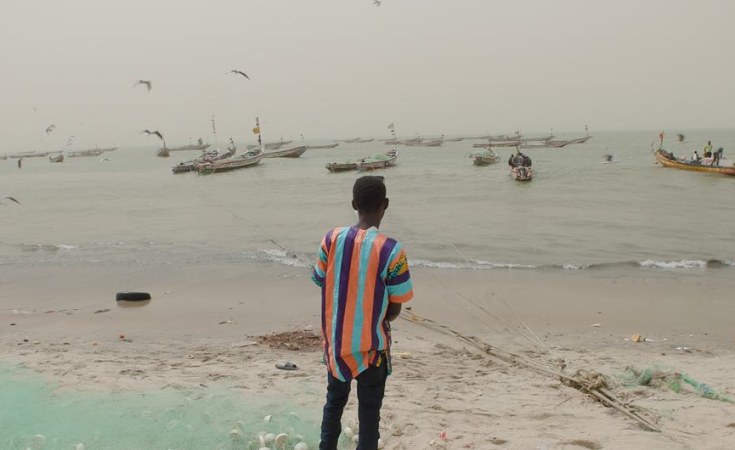Amadou Jobe, like many other Gambians before him, embarked on a perilous journey through northern Africa, in a failed bid to reach Europe. Now, with the support of the UN, he is making a life for himself and his family back home.
"I'm from Jarra, a rural area in the Lower River Region of The Gambia, in the middle of the country. I moved to the capital, Banjul, when I was 15, to live with my brother and go to high school. I didn't graduate, though, because we couldn't afford the fees.
Around five years ago, when I was about 20, my friends encouraged me to leave The Gambia. This is not a wealthy country, and we heard that people had left, and became successful in Europe, sending money back to their families.
I wanted to go to Italy, because I thought that this was the easiest European country to get to. I knew that many people had died trying to get to Europe, but I thought that I could make it.
The first step was neighbouring Senegal, and from there we got a bus to Mauritania. I stayed there, with my sister's husband, for five months, doing construction work, and whatever I could, to earn money for the next stage of the journey.
From Mauritania I went to Mali. This was a very long bus journey, and it took about 12 hours to get to the capital, Bamako. There were many other Gambians on the bus. Then we went to Agadez, in central Niger, via Burkina Faso. At each stage, we had to pay to be allowed to continue. We felt in danger but, by that stage, it was too late to go back.
There were about 25 of us in an open pickup truck, driving through the desert, with no shade. It was very hot and uncomfortable. We drove for three days, sleeping in the desert. At night, it was very cold, and we had to buy blankets and big jackets to keep us warm.
'I was scared they would shoot us'
Sometimes the drivers were nice people, but others were very harsh, and they would beat us. When we got into Libya, we were beaten, and all of our money was taken from us. Luckily, I had hidden some food in the bus. The people who beat us had guns, and I was very scared that they would shoot us.
The next stage of the journey was to Sabhā, in central Libya. Because I had no money, I had to stay in Sabhā for four months, finding work to pay for my fare to Tripoli.
When you travel from Sabhā to Tripoli, you have to be smuggled in. If you are seen, people might kill you, so I had to hide in a dark room with no lights for three days. This was during the civil war, and there was a lot of danger.
'They shot the boat'
I had to wait over a year in Tripoli before I could get to the coast and take a boat for Italy. One of my brothers found the money for me to get a place on the boat. Before we set off, there was some shooting and we soon realized that our boat was taking on water:.
There were armed men who didn't want us to leave for Europe, so they just shot the boat, not caring if any of us died in the water. Our only option was to turn back towards the Libyan coast and, when the boat had taken on too much water, we swam to shore.
When we arrived on shore, we were taken to a detention centre. We were beaten by soldiers, who told us to give them money, but I had nothing left. I had to stay there for two months in these harsh, dirty conditions. Our phones were taken from us so we couldn't contact our families; many of them though that we were dead.
Starting again from zero
Eventually, people from the UN came to the centre. They gave us clothes and some food and offered us a voluntary flight back to The Gambia.
I was very sad: I had lost everything and would have to start again from zero. I didn't want to return home, but I had no choice.
When I arrived in The Gambia, the UN migration agency (IOM) offered to help me to start a business. They asked me what I wanted to do and, because of my experience working in construction, I told them that I could sell cement.
They provided me with tailored in-kind support in the form of a cement business, but, unfortunately, the place I found to store the bags of cement was not protected from the weather: it was the rainy season, and the water reached all of the cement. It was ruined.
I went back to the UN to ask for more help, and they offered me skills training. This was very useful, and I was able to get a certificate and go back to working with aluminium. I got a job working in a friend's shop in Banjul, which sells aluminium window frames.
In the future, once I can raise the money, I plan to open my own shop. I'm married now and I have two children. I want to succeed here now, and I wouldn't try to retry that journey to Europe. It's too risky. If you don't succeed, you lose everything."


